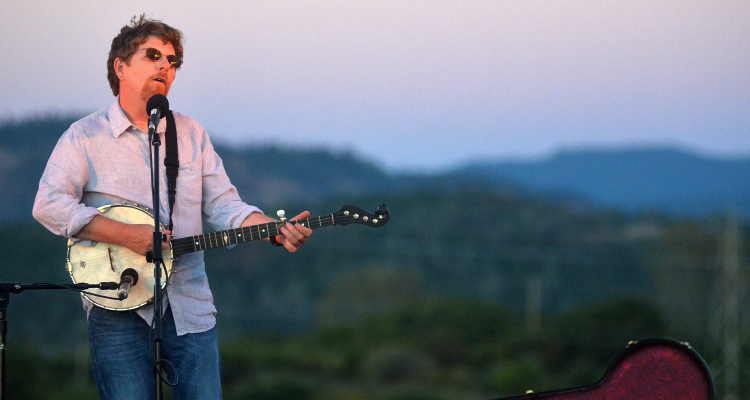Wearing a vintage concert T-shirt, singing every word to every song, dancing indiscriminately and connecting with people who enjoy the exact same music — collectively it makes up the beautiful harmony of the live concert experience that is cherished by so many people. However, today, something is off pitch with that experience — at least for the foreseeable future.
COVID-19 has been detrimental to every industry in the U.S., but the live concert world has been particularly devastated. There is tremendous uncertainty of when it will rebound, with some estimates projecting into 2021. This has left those working in the industry questioning what they need to do in order to adapt for the future.
It is undeniable that nearly everyone in the music business is struggling. This includes musicians. Touring musicians generate a significant percentage of their annual income from touring and merchandise sales. Similarly, local musicians, both full-time and part-time, have had their finances and social lives impacted. In both circumstances, this is why having to cancel and postpone concerts has been devastating. This is also why the path toward a safe rebound for the industry and having creative outlets for artists currently is so important.
THE MAGIC ELECTRIC CONNECTION
The connection between artist and fan at live concerts is undeniable. It is a tangible electric experience. The electric creeps out of the artist into their microphone, guitar, mandolin, drum, bass, banjo, fiddle, keyboard, organ, horn and every other instrument. Accented by brilliant lighting designs, it is injected into a sea of people through speakers at perfect audio precision.
And then it happens, the people move — electric — a complete circuit. That’s the magic. It’s a strange and mystical relationship. And suddenly, when touring stopped, the electric was gone. There was silence.
However, the power couldn’t be turned off for long. Musicians are creative, and the bond with their fans is enduring. Many adapted to the circumstances of the quarantine, finding ways to connect with fans, stay creative and challenge themselves.
At the same time, many were facing financial and mental health difficulties from the sudden withdrawal from performing — an experience unlike any other.
However, most persevered and continued to present their music to fans when it was truly needed to uplift spirits.
BUNNIES, BIRDS & OLD INSTRUMENTS — A VISIT WITH WHEELING NATIVE TIM O’BRIEN
he past 10 weeks of self-isolation have been the longest consecutive period that multi-Grammy and International Bluegrass Music Award-winning musician Tim O’Brien can remember having the opportunity to sleep in his own bed.
“I’m very lucky to self-isolate with my sweetheart Jan (Fabricius), who plays and sings with me on tour,” explained the bluegrass and folk icon from his home. O’Brien, a Wheeling native and a West Virginia Music Hall of Fame member, is fortunate to have a creative partner to self-isolate with during this period, which has undoubtedly allowed the couple to stay creative during this difficult time.
Like many, his garden and visiting backyard animals have been welcome companions during the isolation. “As you can imagine, our garden looks the best it’s looked in years! We’ve gotten to know bird couples feeding near the back porch and watched them build nests. We also found a rabbit’s nest in the mint patch. It’s now vacant and obsolete, but we see the bunnies now and again.”
As the severity of the pandemic was realized, it was a century-old instrument that was a gift from an old friend that brought light to the situation.
“A longtime friend and fellow musician called a couple of months ago, I thought just to check in. He had a good poem about the situation to recite for us, and then revealed his plan to send some of his neglected instruments to people who would appreciate them. He’s 82 and living alone and, while he’s well, he wanted to make sure the instruments were tended to, even if he became a victim of the virus. Some tears fell, and then a week or so later, I received a 1918 Gibson mandocello (a plucked version of a cello) in the mail. He’d used old T-shirts from festivals we both played as packing material.”
That mandocello had been born into another worldwide pandemic a century ago and had survived much more during its lifetime before arriving into the safety of O’Brien’s care.
The thoughtful and emotional gift brought welcome musical inspiration to O’Brien and Fabricius, as he explains, “In light of all we’re experiencing, the presence of the instrument in our house’s music room resonates. And it has become a reminder to work on some mandolin music.”
O’Brien explained how this gift may inspire future works with similar instruments in the mandolin family. “Somewhere on the horizon, I mean to arrange a mandolin quartet — two mandolin, mandola and mandocello, and have been on the learning curve on how to write in tenor and bass clefs.”
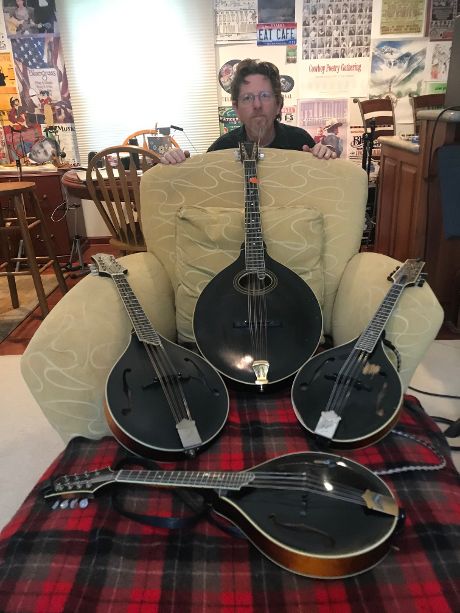
O’Brien recently re-released his 1999 album “The Crossing,” which can be found on his website and digital music services, and has recently taken part in several online streaming performances.
Similar online performances have become very popular during the pandemic with many artists streaming as a way to continue connecting with fans. However, O’Brien explained he was initially cautious about the technology because “the screen is so flat.” However, “…that dread made us work on a special program devoted to the times we’re living in, and we got to get closer to our fans in one way because they came into our home, and saw a different side,” he said.
While this technology has allowed O’Brien and his fans the ability to connect, it still lacks the experience of live concerts. “While the many live streaming events offer a connection, I have to say I miss the opportunity to get together with folks in the same room. As public people, we performers guard our privacy, but we also make it our business to get people together. Music creates community, and it’s still doing that, but with filters and time delays.”
The time at home has allowed the Wheeling native to reflect on the incredibly successful years he has had on the road with his own band, with Hot Rize, his sister Mollie O’Brien and many other successful projects. “This time has underlined how fortunate I’ve been to attend 40-plus Telluride Bluegrass festivals, and a whole bunch of other annual events that have become as much family reunion as concert events.”
In regard to what he would say to the people back in Wheeling, O’Brien urged “…the folks in beautiful Wheeling to stay safe and do your best. Things are topsy-turvy and before we come out the other side, some dramatic change will have taken place. Wars and famines and plagues have a way of both hiding change for a bit, while also hastening it. We can’t know all of it, but it is a troubling marvel to witness. One lesson to keep learning is — love your neighbor.”
And in one last piece of advice, O’Brien drew inspiration from another great West Virginia musician, “Give to others but don’t forget to ask when in need,” as Bill Withers says so well in the song, “Lean On Me.”
SOMEONE TO LEAN ON — THE GENEROSITY OF LOCAL MUSICIANS
On March 27, local musician Tim Ullom performed an acoustic concert from his home, streaming live on Facebook. The concert raised over $5,200 for Augusta Levy Learning Center in Wheeling, an organization that provides life-changing services to children with autism. In the following few weeks, other Wheeling musicians Logan Wojcik and Robert Gaudio joined Ullom to continue raising additional funds for ALLC.
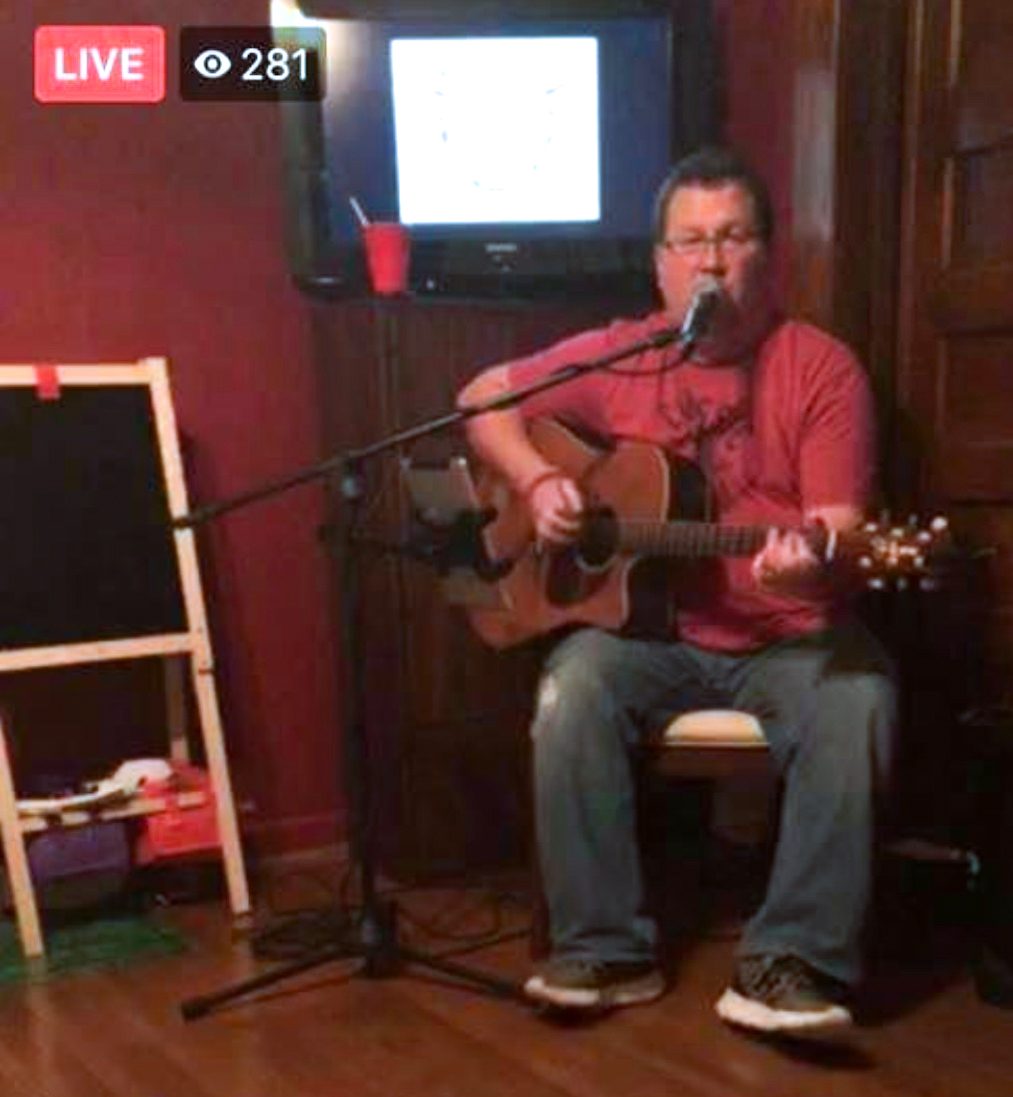
“COVID-19 has drastically changed the way ALLC has had to fundraise. We have had several fundraisers that we have had to cancel or postpone. We also recognize the challenges facing the community, the country and the world, so we didn’t want to ask for donations,” explained Staci Stephens of Augusta Levy Learning Center.
“The artists contacted me individually and asked if it would be OK if they held a virtual concert and donate tips to the Levy Center, and we agreed. The money raised by Tim, Robert and Logan helped make up for some of the canceled fundraisers, and we can’t thank them enough! We are so grateful to them and to the community for all of their support,” Stephens said.
The generosity of these musicians using their talents to help others is massively beneficial. “The money raised from the fundraisers helps ALLC provide life-changing services to children with autism,” she added.
FROM BLUESFEST TO FACEBOOK — MUSIC REMAINS LIVE
Damon Fowler is an undeniable guitar sensation and has become a favorite of music fans in the Ohio Valley after numerous appearances at Heritage Music BluesFest and River City Restaurant. He may be a national blues superstar, but his music is also steeped in the traditions of multiple genres including gospel, country, rock, soul, jazz and reggae. That combination has made Damon Fowler the true original American musician that he is today.
At heart, Fowler is a touring musician. The connection with his fans that is found on the road is extremely important. When touring stopped, it was important that he find a way to continue that connection. “Connecting with fans has actually been easy for us. The fans have been great. I started a live stream show once a week. It’s called ‘Fowler’s Garage.’ We’ve had a great response from the fans,” explained Fowler. The relaxed performances stream live weekly on Damon Fowler’s Facebook page from his garage and include some storytelling and interacting with fans watching online.
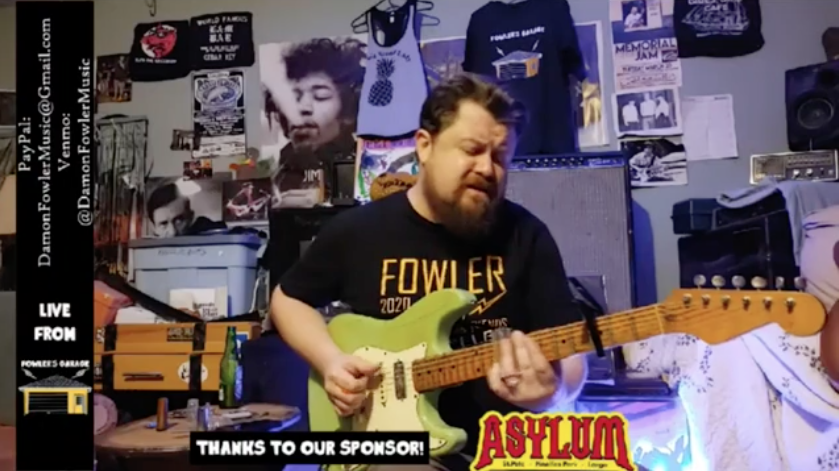
After seven successful solo album, including the recent “The Whiskey Bayou Sessions” in 2018, Fowler continues to be a favorite collaborator with other musicians. His recent collaborations have included touring with founding Allman Brothers Band members Dickey Betts and the late Butch Trucks, in their own respective bands. His collaboration in the blues “super-group” Southern Hospitality, which launched in Wheeling at Heritage Music BluesFest in 2011, included other blues stars J.P. Soars and Victor Wainwright.
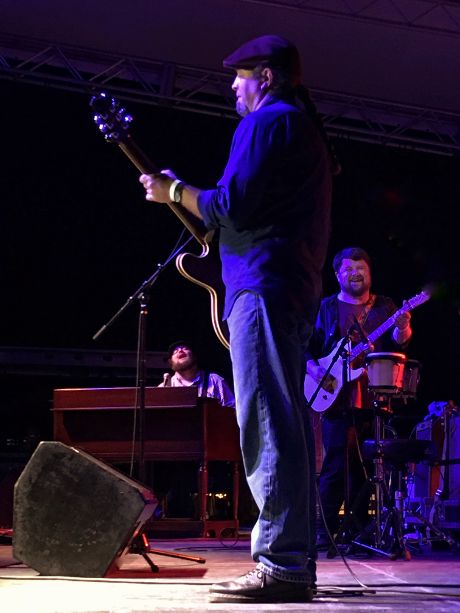
The response to “Fowler’s Garage” has been so great that he is launching an additional project. “It’s called ‘Gig Stories from Fowler’s Garage.’ I record Zoom meetings with touring musicians and get funny, crazy and uplifting stories.” The new series is now available on Fowler’s YouTube page.
Like O’Brien, while technology has been successful in allowing Fowler to connect with his fans during this time, he admits, “I really miss the interaction with a live audience.”
Until the day comes when Fowler is able to return to the road and see those fans again, he’s enjoyed the time at home with his family. “Having a family and being off the road has been really nice. It’s also giving me time to slow down for a minute.”
A NEW CHALLENGE — FINDING WAYS TO INSPIRE OTHERS
Pat Harrington is a young guitarist who is gaining a reputation as one of the best guitarists on the blues scene today. He tours as a member of the Grammy-nominated and multiple Blues Music Award-winning Victor Wainwright and the Train. The crowd-pleasing band is another favorite at Heritage Music BluesFest and River City Restaurant.
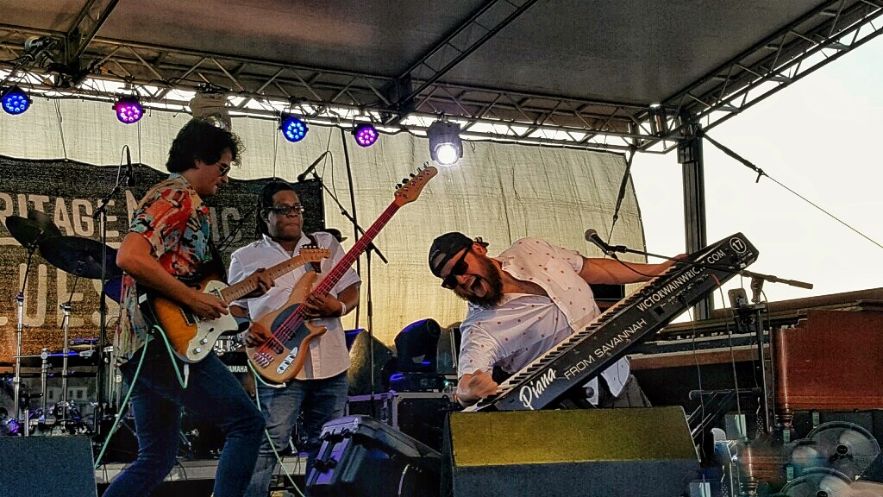
While not touring, he has found a unique way to continue challenging both himself and his music. At the same time, he is helping others. While at home during the crisis, Harrington has been offering guitar lessons to aspiring guitar players online.
“Lessons have been a great way for me to delve into another side of music that I haven’t explored, because I haven’t had the time since I’m normally so busy touring,” said Harrington.
The lessons have also challenged Harrington, as he explains. “It’s been a huge learning experience for me, too, not just the students. It forces me to explain what I do, so I have to look at my musicianship from a very different perspective. I have to be honest with myself, and it forces me to recognize my weaknesses as a musician, which is an incredible opportunity to work on them and grow as a player.”
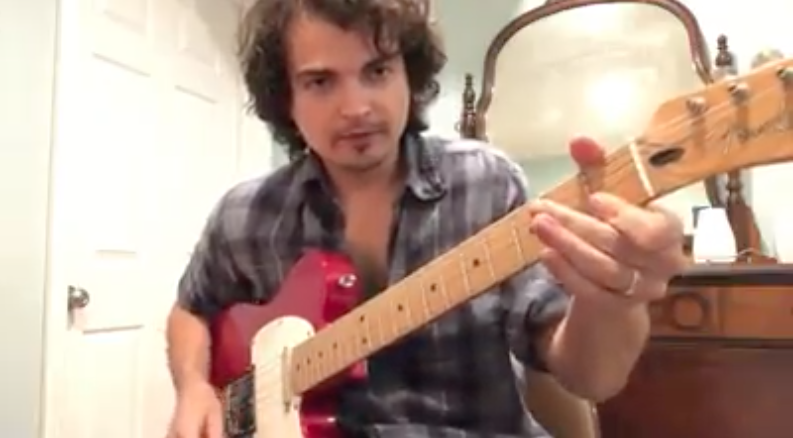
The unselfish generosity of musicians shines as Harrington explains inspiring new generations of musicians, even during this difficult time, “It is just incredibly satisfying to help other people of all levels on their guitar journey to get to the next level in their playing.”
LOCAL MATTERS — WHEELING’S MUSICIANS’ STORIES OF ISOLATION
Local musicians have been significantly impacted during this time as well. While some of these musicians rely on performing as auxiliary income, others rely on it as a primary means. Regardless, not having performing as a social and creative outlet has been difficult both financially and mentally.
“I am happy to social distance for the health and safety of others, and will continue to do so,” said Adrian Niles, a favorite singer-songwriter in the Ohio Valley. “From full-time gigging to all shows canceled within a week or two has been tough to manage.”
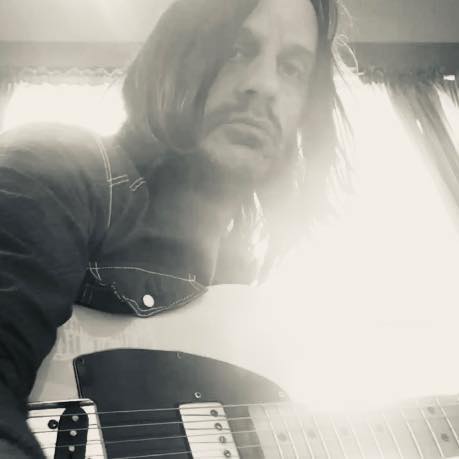
Jason Treuman is another favorite musician in the Ohio Valley with a similar experience. “Performing was my full-time job. It wasn’t my hobby or what I did for fun on the weekends. So I basically lost my business. It’s been rough, affecting my income and mental health.”
FINDING SANITY IN THESE STRESSFUL TIMES
Amy Gamble, mental health speaker and advocate, said regarding the crisis, “COVID-19 is causing acute stress and prolonged uncertainty for everyone. It especially impacts people who are very social. We have limited opportunities for live connections with others. Isolation can trigger mental health conditions. It’s important to reach out find connectivity through social media, zoom or an old-fashion phone call.”
Niles said that he has been able to find ways to stay creative and connected during this time, which has helped greatly. “I have found my purpose and sanity in writing, recording songs and offering live stream performances online. I share comfort with my wonderful family, and we do our best to stay safe and healthy. I cherish the time we spend together,” he said.
“Depression comes and goes and comes again, as it always has for me. The difference being the unfamiliar uncertainty a pandemic suggests. It will pass. In the meantime, I feel fortunate to have my experience; all of it,” Niles said.
Regarding resources that are available to help those struggling currently with mental health issues, Gamble says a few great resources for help are Mental Health America, the Crisis Text Line (741741) and the National Suicide Prevention Line (800-273-8255). People can also contact Gamble on her website and follow her blog Shedding Light On Mental Health.
MUSIC WILL PERSEVERE — THE PATH FORWARD
The future of the live concert industry remains uncertain. Live concerts may not be the same for quite a while. However, one thing is perfectly clear. Live music is needed.
It’s the creativity of artists like Tim O’Brien that will allow music to persevere. It’s the hearts of artists like Tim Ullom, Robert Gaudio, Logan Wojick and so many others who will allow live music to persevere. It’s the connection that artists like Damon Fowler have with their fans will allow music to persevere. It’s the generosity of artists like Pat Harrington who continue to challenge themselves in the face of adversity that will allow music to persevere. It’s the drive of incredibly talented artists like Jason Treuman and Adrian Niles that will allow live music to persevere. It’s all of those working hard, unrecognized behind the scenes that will allow it to persevere.
Until the day comes when fans can safely return to concerts in person, music is still live — digitally. Support musicians by buying their merchandise on their official websites. Support national and local musicians by watching their streams online. And when the day comes that people can return to live concerts — let there be music!
• Kyle Knox, born and raised in Marshall County, West Virginia, is a long-time events industry professional with years of experience working at various venues and events throughout the tri-state area, including The Capitol Theatre, WesBanco Arena, Jamboree In The Hills, Heritage Music BluesFest and the Wheeling Symphony. Before returning to the Wheeling area, Kyle also worked in the events industry in Pittsburgh. Kyle is passionate about music, Appalachian history and culture, nature and local sustainable foods. He is a 2013 graduate of West Liberty University and became a contributing writer for Weelunk in 2020.


